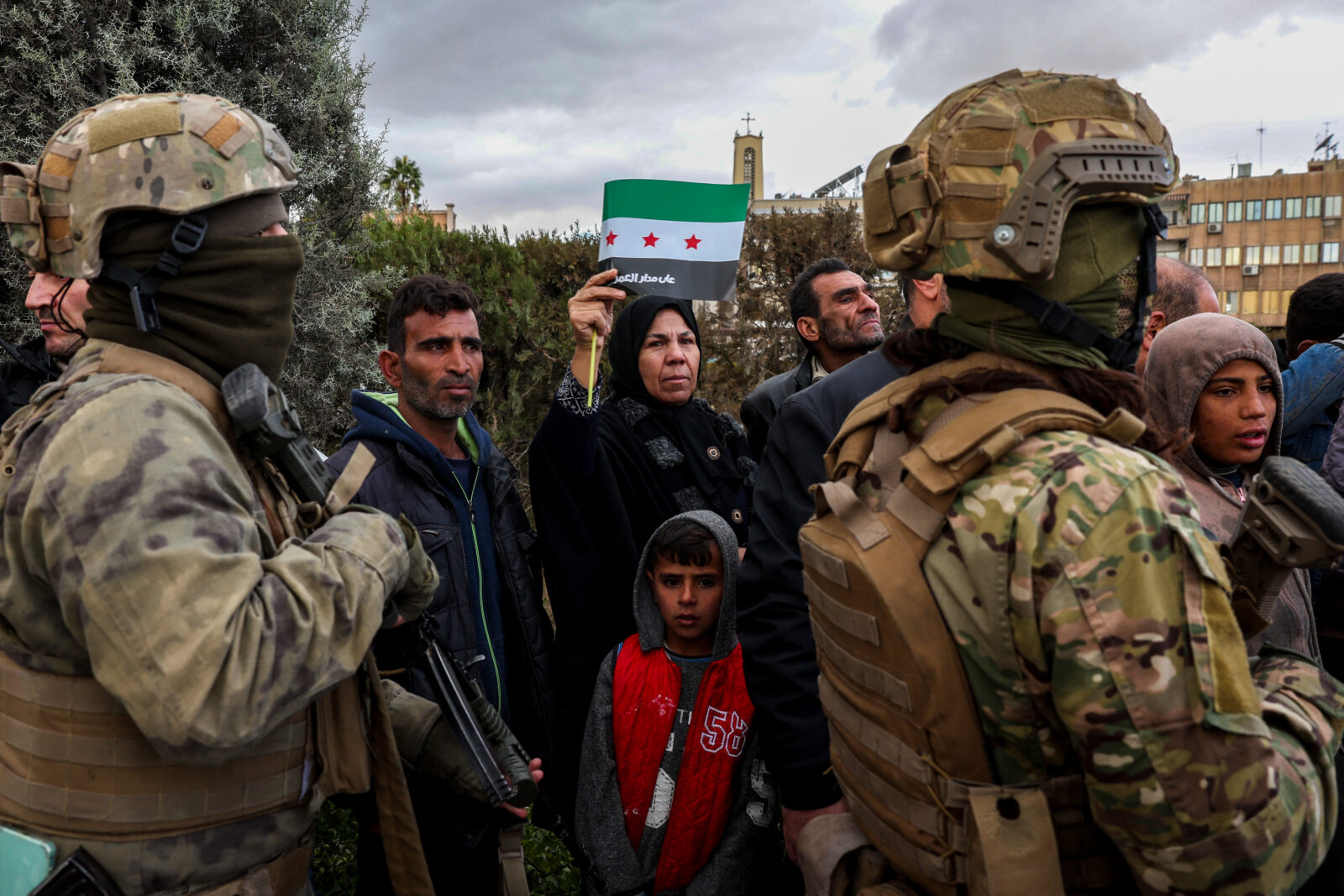Regional power struggles: Challenge of stability in Syria
 Man holds the new Syrian flag while riding a horse at Al-Hamidiyah market in Damascus on March 3, 2025, during the Muslim holy fasting month of Ramadan. (Louai Beshara/AFP Photo)
Man holds the new Syrian flag while riding a horse at Al-Hamidiyah market in Damascus on March 3, 2025, during the Muslim holy fasting month of Ramadan. (Louai Beshara/AFP Photo)
Recent developments in Syria suggest that Israel and Iran are taking steps that could disrupt Ankara’s “Terror-Free Türkiye” initiative, an effort aimed at eliminating terrorist threats and stabilizing its southern border regions. While both countries pursue their own security and geopolitical goals, their actions in Syria have led to a situation that complicates Türkiye’s objectives.
Syria has long been a battleground for regional and global power struggles, with multiple actors vying for influence. Türkiye has prioritized counterterrorism efforts in Syria, targeting groups it considers a direct security threat. These efforts include military operations against armed groups affiliated with the PKK, as well as measures to prevent extremist organizations from regaining strength. However, the already complex security landscape has been further complicated by the activities of Israel and Iran.
Israel has long viewed Iran’s deepening military presence in Syria as a direct threat and has frequently conducted airstrikes targeting Iranian military positions and allied militias, including Hezbollah. These strikes, while aimed at weakening Iran’s influence, have contributed to instability in regions where Türkiye is working to establish security. The ripple effects of these Israeli operations have made it more challenging for Türkiye to sustain its counterterrorism strategy.

On the other hand, Iran continues to entrench itself in Syria by strengthening its network of militias and expanding its logistical corridors across the region. This long-term strategy is designed to secure a land route stretching from Iran to Lebanon, enhancing Tehran’s ability to project influence. However, the presence of Iranian-backed militias in Syria—close to areas where Türkiye is actively working to establish security—adds another layer of complexity.
Consequences for Türkiye’s security policies
The evolving situation in Syria presents Türkiye with a significant challenge: maintaining security in the face of shifting power dynamics involving multiple foreign actors. Each military intervention—whether by Israel, Iran, or other external forces—triggers reactions that reshape the strategic environment, often in ways that undermine Türkiye’s ability to consolidate stability.
One of the biggest concerns for Türkiye is that instability in Syria provides an opportunity for terrorist organizations to regroup and expand their influence. Each time an external power escalates military operations, it shifts local alliances or leaves a power vacuum that militant groups can exploit. This makes it more difficult for Türkiye to enforce long-term security measures and prevent the resurgence of threats along its borders.

Moreover, Israeli-Iranian tensions often overshadow Türkiye’s security priorities in Syria. When Israel intensifies airstrikes on Iranian positions, Iran responds by reinforcing its presence through additional deployments of militias and weapons. This escalation diverts international attention away from Türkiye’s counterterrorism efforts and complicates Ankara’s ability to coordinate security operations with regional and global actors.
Beyond immediate military concerns, Syria remains a key arena for broader geopolitical competition. Various actors are not only engaged in military operations but also using diplomatic and economic leverage to shape the country’s future. For Türkiye, the challenge is to navigate this complex environment while ensuring that its security policies remain effective. This requires a careful balance between military operations, diplomatic engagement, and long-term strategic planning.
As long as Syria remains a contested battleground, Türkiye’s counterterrorism efforts will face ongoing obstacles. The actions of Israel and Iran—driven by their own security concerns—continue to fuel instability, making it more difficult for Türkiye to maintain control over critical areas. Given this reality, Türkiye must remain flexible in its approach, adjusting to changing conditions while staying committed to its broader security objectives.
The path forward is far from straightforward, but one thing is clear: Türkiye’s long-term security depends on its ability to manage external disruptions, maintain regional partnerships, and reinforce its strategic vision in an environment where power dynamics are constantly shifting.
About the author: Tolga Sunhiran is a freelance writer specializing in political and global issues.



